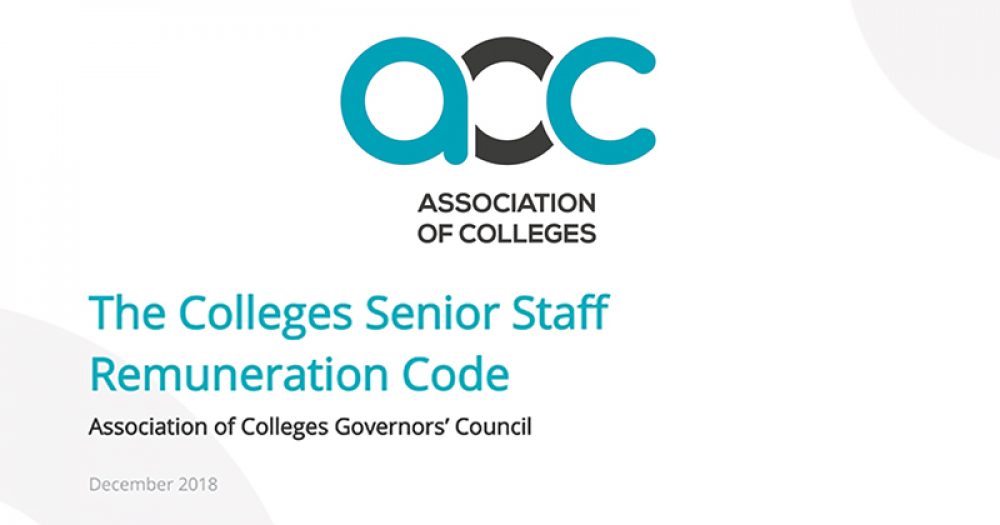The Department for Education is “encouraging” colleges to be more transparent about senior staff pay when they file their accounts – along with whether they have adopted the Association of College’s new code.
A “college accounts direction” for 2018/19 was published by the department today and included “substantial” updates that corporations should include when submitting their upcoming financial statements.
“Corporations receive significant investment from public funds and need to demonstrate to stakeholders that decisions made on executive pay are evidence-based, proportionate and represent value for money,” it said.
“This year, as a matter of policy, we have increased transparency around executive pay to support accountability, and to help maintain public confidence and trust in executive pay.”
While the DfE has clamped down on chief executive pay in multi-academy trusts and vice-chancellor wages in universities, including writing to demand a justification of salaries of over £150,000, no such action has been taken against colleges, despite many principals earning over £200,000.
Addressing colleges today, the DfE said: “We encourage corporations to make every effort to evidence their disclosures fully, and to consider what other information enhance transparency and understandability.
“For example, corporations could consider providing stakeholders with more meaningful information to help them understand pay structures and movements, such as: remuneration paid or payable in the year, alongside full-time equivalent information [and] whether they have adopted AoC’s Governor’s Council’s The Colleges Senior Staff Remuneration Code.”
The voluntary guidance from the Association of Colleges, which received mixed reactions when it was being consulted on, was published in December.
It encompasses “three core principles: fairness, independence and transparency”.
The main policies include only giving seniors a pay rise if all staff also receive one, removing top college bosses from remuneration committees, and separate publication of principal salaries.
It was developed after tension between lecturers and their bosses intensified as college leaders enjoyed bumper wage increases while pay for lower-level staff has reportedly failed to keep up with inflation.
The University and College Union blasted principals for being “greedy and hopelessly out of touch” in April last year, after its analysis of 2016/17 accounts showed a third enjoyed a pay rise of more than 10 per cent.
Seventeen principals earned salaries of over £200,000 that year.
Today’s accounts direction from the DfE emphasises that colleges “risk” intervention from the Education and Skills Funding Agency if they do not submit their audited accounts for 2018/19 by December 31, 2019.
It also highlights that colleges and their auditors “need to be mindful of the new insolvency regime in preparing accounts”, which came into force on January 31.









Your thoughts